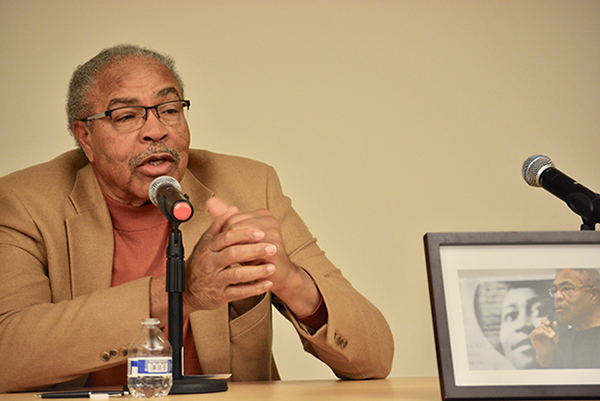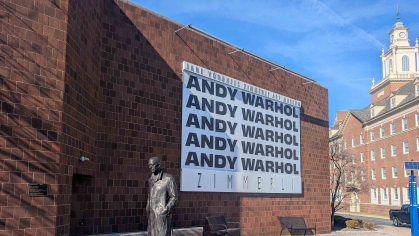Last Witness to Emmett Till Abduction Recounts His Final Days
Till’s cousin discussed misinformation about the murder that catalyzed the civil rights movement

More than six decades since the death of 14-year-old Emmett Till, the African-American teenager whose 1955 lynching helped spark the civil rights movement, Rev. Wheeler Parker Jr., a cousin who is the last living witness to his abduction, still struggles with the horrific memory.
“Sometimes I think about Emmett and it feels like a nightmare that didn’t really happen,” Parker said. “I could hate the people who did this to him, but I come from a religious family and we were taught not to hate. Hate destroys the hater.”
Parker discussed the killing that took place in Mississippi when Till was visiting family 65 years ago during an event Thursday at Rutgers University-New Brunswick. He reflected on his cousin’s personality and upbringing in Chicago, and the inaccuracies of what Parker said has become one of the most embellished stories in American history.
The two were together when Till whistled at Carolyn Bryant, a white woman, at her family’s grocery store. Four days later, Parker said he witnessed Till’s abduction at gunpoint at his great-uncle’s home. Fearing for his life, Parker immediately returned to Chicago, and soon after Till’s tortured body was found in the Tallahatchie River. Bryant’s husband and half-brother were acquitted of murder by an all-white jury but later admitted their guilt.
“Till did whistle,” he said. “Some people don’t want to think that he did, but he did and when it happened, we could have all fainted. He was so afraid and knew he messed up. He was fun-loving and carefree, but that didn’t fly in the South and this was a very different time.”
Parker remembers that on the night of Till’s abduction he felt that death was near.
“A man had a pistol in one hand and a flashlight in the other, and they passed right by me, and then they passed by my cousin Curtis,” he said. “At around 3 a.m., they took Emmett. We stayed up all night in silence. It seemed like daylight would never come.”
Parker plans to share his experiences in his upcoming memoir, A Few Days: Full of Trouble, scheduled to be released after the FBI concludes its investigation into Till’s case, which was reopened in 2017 after newly discovered evidence.
“All history to some degree has been embellished, but Till has been demonized in accounts from people who were not there and I want to correct the inaccuracies and share what really happened,” said Parker, who described Till as a fun-loving prankster who was always the center of attention.
The Rutgers event, Love, Forgiveness and Reconciliation, was hosted by the Department of American Studies in the School of Arts and Sciences and co-sponsored by the Department of History, Douglass Residential College, the Paul Robeson Cultural Center, the Department of Africana Studies and the Program in Criminal Justice.
The event grew out the course “Remembering Emmett Till” that Christine Zemla, a professor in the Department of American Studies, created after visiting the Mississippi Delta over the past 15 years and feeling that Till’s story kept her coming back.
“I didn’t learn his story until I got to college and I wondered, ‘Why didn’t I learn about this?’” said Zemla, who invited Parker to speak at Rutgers after meeting him last summer at the Tallahatchie Courthouse where Till’s murder trial took place.
When asked by a student for advice on how to resist the urge to become combative in a society that seems to be digressing in racial equality, Parker said there is always a choice.
“You can’t change things by being upset internally,” he said. “You can’t change things with mental anguish. So, what you can do is to think positive. We are all recipients of ideas. All we can do is make choices.”


